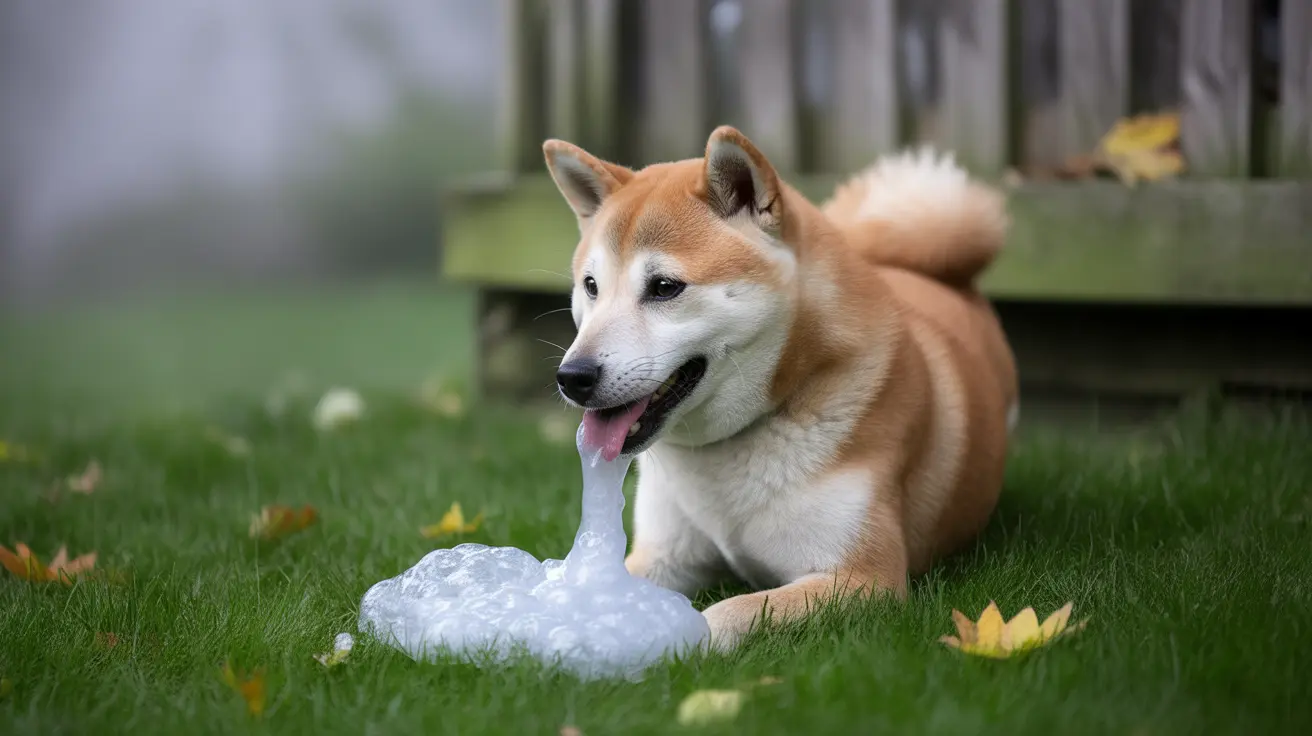Common Causes of Dog Vomiting Mucus
Empty Stomach (Bilious Vomiting Syndrome)
One of the most common reasons dogs vomit mucus is an empty stomach, particularly in the morning. When a dog's stomach remains empty for too long, bile and stomach acids can build up, leading to irritation and vomiting of clear or yellow mucus. This condition, known as bilious vomiting syndrome, typically occurs after long periods without food.
Dietary Issues and Food Sensitivities
Sudden changes in diet, eating too quickly, or consuming inappropriate items can trigger mucus vomiting. Dogs who eat grass frequently may vomit mucus as their body attempts to expel the irritating material. Food allergies or sensitivities can also cause chronic inflammation leading to mucus production and vomiting.
When to Be Concerned About Your Dog's Mucus Vomiting
Warning Signs Requiring Immediate Attention
While a single episode of mucus vomiting might not be cause for alarm, certain symptoms warrant immediate veterinary care:
- Frequent or persistent vomiting
- Blood in the vomit
- Severe lethargy or depression
- Loss of appetite
- Visible abdominal pain or bloating
- Concurrent diarrhea
- Signs of dehydration
Serious Medical Conditions
Several serious conditions can cause mucus vomiting in dogs:
- Gastrointestinal obstruction
- Pancreatitis
- Inflammatory bowel disease
- Infections (viral or bacterial)
- Gastric dilatation-volvulus (bloat)
Treatment and Prevention Strategies
Immediate Care Steps
If your dog vomits mucus once or twice but otherwise appears normal:
- Withhold food for 4-6 hours
- Provide small amounts of water
- Gradually reintroduce bland food
- Monitor for additional symptoms
Long-term Prevention
To help prevent mucus vomiting:
- Feed smaller, more frequent meals
- Maintain a consistent feeding schedule
- Avoid sudden diet changes
- Prevent access to non-food items
- Keep regular veterinary check-ups
Frequently Asked Questions
Why is my dog vomiting clear or foamy mucus, especially in the morning?
Morning mucus vomiting is often caused by excess stomach acid or bile build-up from an empty stomach overnight. This condition, known as bilious vomiting syndrome, can be managed by feeding a small meal before bedtime or early in the morning.
What are the common health problems that cause a dog to vomit mucus?
Common health issues include gastritis, dietary indiscretion, food allergies, infections, inflammatory bowel disease, and in more serious cases, gastrointestinal obstruction or pancreatitis.
When should I take my dog to the vet if it is vomiting mucus?
Seek veterinary care if vomiting persists for more than 24 hours, contains blood, is accompanied by lethargy, diarrhea, or loss of appetite, or if your dog shows signs of pain or distress.
How can I prevent my dog from vomiting mucus due to an empty stomach or diet changes?
Feed smaller, more frequent meals throughout the day, maintain consistent meal times, and make any dietary changes gradually over 7-10 days. Consider a bedtime snack if morning vomiting is common.
What home care steps should I follow if my dog throws up mucus once or twice?
First, withhold food for 4-6 hours while continuing to provide access to water. Then, offer small amounts of bland food (like boiled chicken and rice) before gradually transitioning back to regular food over 24-48 hours. Monitor for any worsening symptoms.






